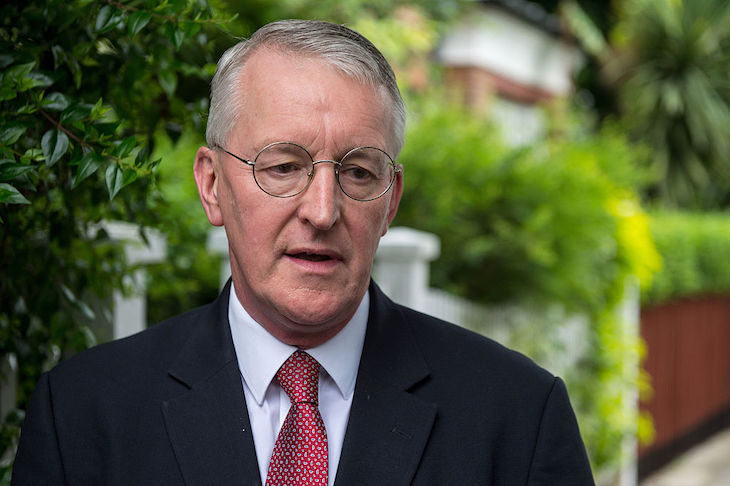So there goes the reputation of Boris Johnson’s henchmen as cunning operators. It has been a bad week for Dominic Cummings and others in the Downing Street bunker who were widely assumed to have gamed every possibility and to have some genius strategy for delivering Brexit by 31 October, in spite of the assembled forces of Remain who are determined to stop them. Clearly, not everything has gone to plan. The Remainers have enjoyed their Battle of Marston Moor. It is Parliamentarians 1, Cavaliers 0. On Monday, a bill seeking to prevent a no-deal Brexit on 31 October will become law – and Boris has been denied his fallback: a general election.
But not so fast. I think Remainers may just have made a huge slip-up of their own – and may come bitterly to regret their decision not to back an October election. If they do fail to prevent a no-deal Brexit it will be because they lost concentration and allowed Corbyn’s personal political interests to take precedence over what ought to be their central cause of stopping Brexit.
As Emily Thornberry confirmed on the Today programme this morning, Labour will not vote for an October general election even when the bill to try to prevent a no-deal Brexit becomes law on Monday. This somewhat undermines the reason Jeremy Corbyn gave on Wednesday for rejecting the Prime Minister’s call for an election – that he wanted to be absolutely sure that Boris Johnson couldn’t sneakily change the date of the election and so allow Britain to slump out of the EU while Parliament was dissolved for the election period. Given that Parliament should be prorogued after Monday’s business, it is difficult to see how we can now have an October election.
That will suit Corbyn fine. There is grim logic why he doesn’t want an October election. While the Conservatives will have an uphill struggle to win such an election, or to win it outright, Labour is almost certain to lose. The party is at a derisory 25 per cent in the polls. Succeed in putting off an election until November, on the other hand, and the picture improves considerably. An ICM poll published this morning asked the public how they would vote, firstly if we had an election in the middle of October with Boris still promising to take us out of the EU on 31 October, deal or no deal, and secondly if we had a general election in November, having failed to leave on 31 October.
The results are starkly different. In the first scenario, the Tories take 37 per cent of the vote and Labour 30 per cent (quite a jump from recent polls but still a long way behind their main opponents). If the election is delayed until November, on the other hand, Tory support collapses to 28 per cent as votes drift away to the Brexit party. Labour’s vote falls, too, to 28 per cent, but the party is then at least on a par with the Tories.
But is delaying an election really in the interests of Remain? The trouble is that while Hilary Benn’s bill, which will become law on Monday, would oblige the Prime Minister (be it Boris or anyone else) to request an extension to Article 50 if no deal can be reached by 19 October, it doesn’t, and couldn’t possibly, oblige the EU to accept such a request. Given that such an extension would have to be ratified by all EU members, there are some doubts as to whether the EU would approve an extension. Emmanuel Macron, for one, is believed to be lukewarm on the idea.
There is another EU leader who is known to be not so keen on the idea of an extension, either – one Boris Johnson. Ultimately, the Prime Minister has it in his power to make sure that the UK does not get an extension (even while fulfilling his legal duty to request one) by making certain demands that the EU is bound to refuse.
The forces of Remain would scream blue murder, of course. Gina Miller would head off to the courts yet again. But what difference would it make? The default position is that Britain will leave the EU on 31 October and that is that. Remainers would be left wondering how they had let it slip when they had the opportunity of fighting an election over the issue of no Brexit – and having at least a sporting chance of Britain electing a Prime Minister who was prepared to pull the plug on Brexit and withdraw Article 50 in the last few days before 31 October.








Comments